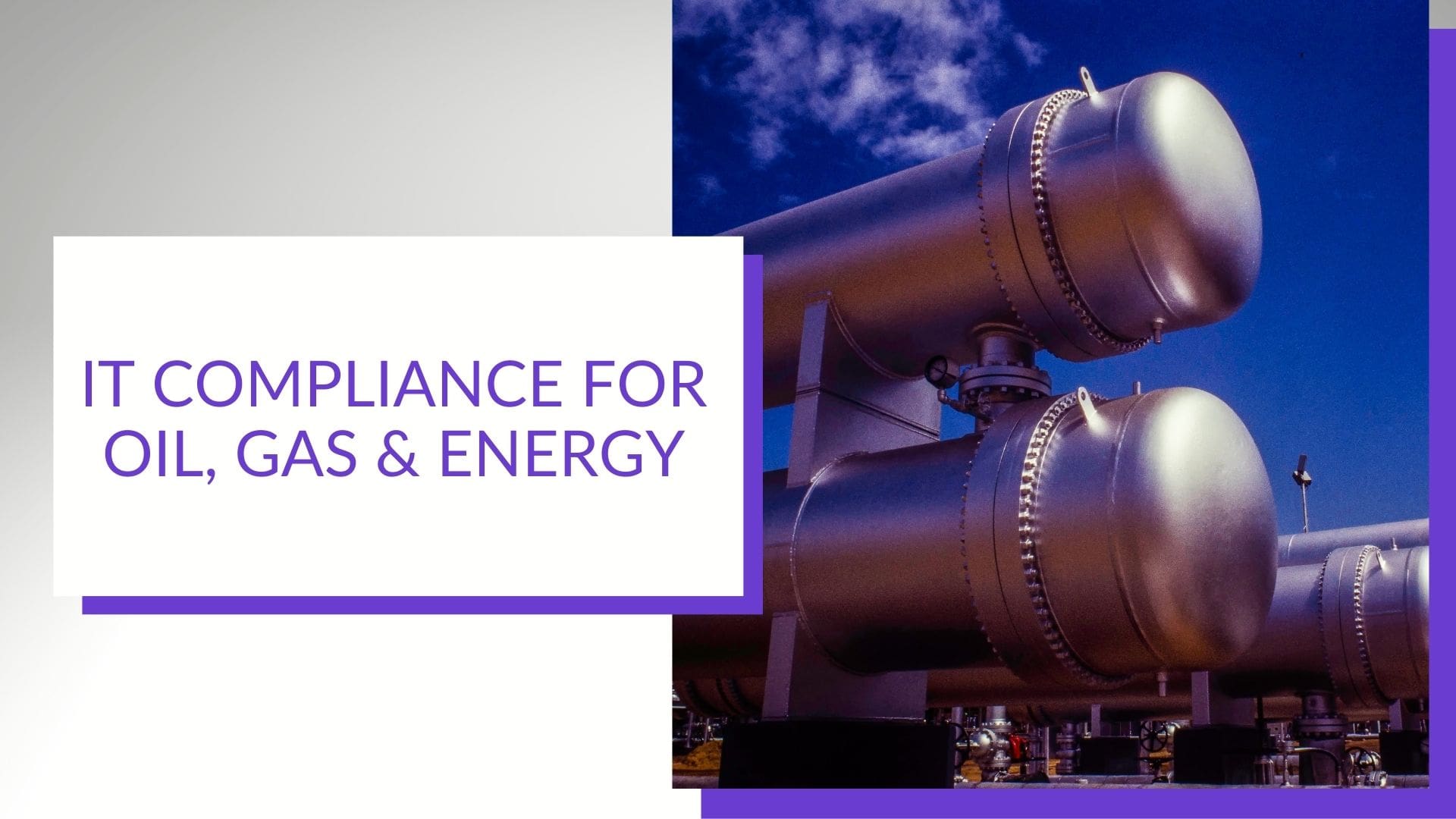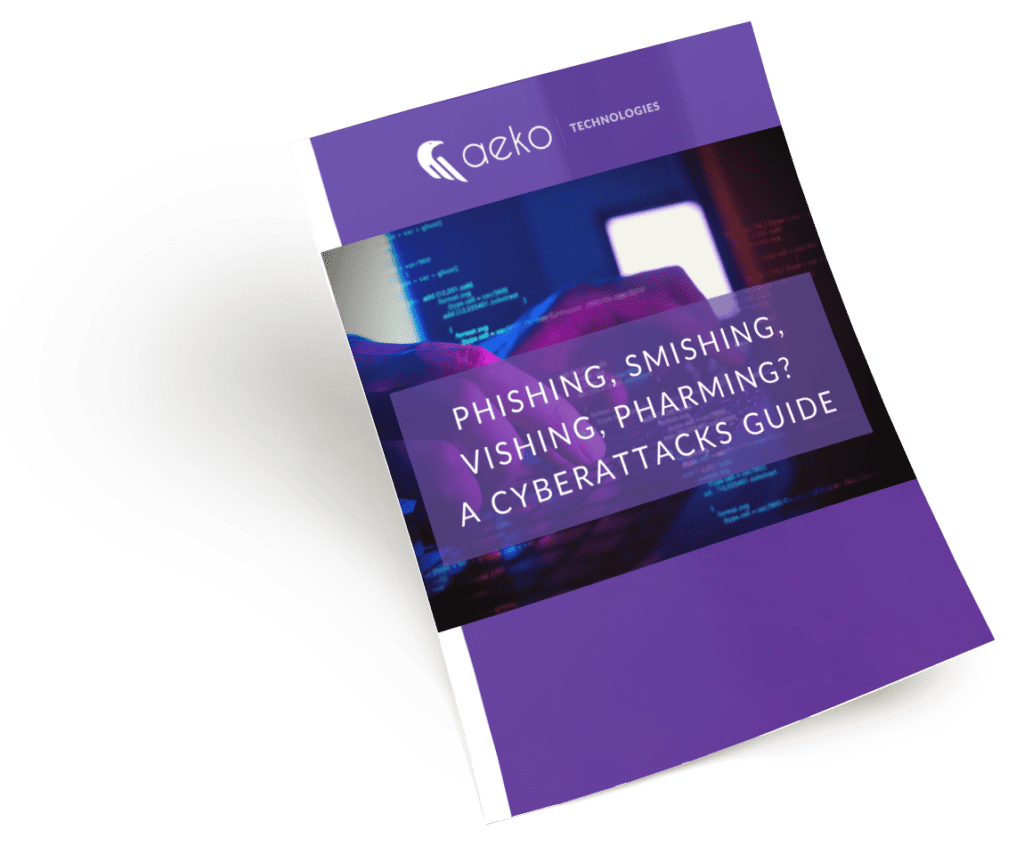
IT Compliance for Energy Industry: Oil, Gas & More
IT is complex, especially for those in the energy industry. Compliance, security, infrastructure—all can be mind-boggling without the right partner. As a managed service provider with years of experience navigating the complex energy industry, we at Aeko Technologies encourage energy business owners to find a good IT and cyber security partner for expert guidance.
As technology grows, it seems that the world is shrinking. No longer do energy companies stand alone in their locality. All rely, to some degree, on companies in other regions, states or even nations. And ALL must comply with the regulations and compliance rules within each of those governments and regions. They have to do so while securely protecting their data and infrastructures and providing necessary services to customers, both private and public. That’s a daunting task to say the least.
Even if you are not an energy provider, you may need to be compliant. Business vendors who support the energy industry need to follow many of the same rules as the energy companies themselves.
Choose the right IT provider for your business with our MSP Checklist.
Aging Energy Infrastructure and the Move Toward Digitization
The utility industry started a transition from analog to digital several years ago. Recent cyber attacks and the Colonial Pipeline shutdown leave many concerned it is not happening quickly enough. It is a complex transition because information technology (IT) systems that enable business functions need to work alongside operational technology (OT) systems that generate, transmit and distribute power.
In its Caught in the Crosshairs report, Siemens states, “Cyber threats present a greater business risk from {global utilities’} OT than their IT environment … including a focus on availability, reliability and safety … their destructive capabilities and their ability to identify weak points in security regimes.”
Cyber security efforts need to be implemented across both OT and IT systems.
Of course, the energy industry is not the only sector with these problems. But not many industries have the potential for economic and lifestyle disruption that an energy outage can create. Which is why this already heavily regulated industry may have even more compliance issues in coming months and years.
Types of Energy Industry IT Compliance
Whether you are an energy industry company or a vendor supporting an energy industry company, you have to be aware of these IT compliance rules, at a minimum:
NERC CIP Compliance
Specific energy reliability standards in North America are enforced by the North America Electric Reliability Corporation (NERC). Their compliance standards are often referred to as the NERC Critical Infrastructure Protection (CIP) standards.
All energy power owners, operators and users must be registered with NERC and must comply with NERC CIP standards that regulate the generation and transmission of power as well as day-to-day operations.There are 12 currently active NERC CIP standards and another four that are subject to future enforcement.
CMMC Compliance for DoD Suppliers
An energy industry company, or any other business, that is a supplier or subcontractor for the Department of Defense (DoD) also needs to be CMMC compliant. The Cybersecurity Maturity Model Certification (CMMC) is a relatively new compliance requirement and can be complex to navigate. That’s because you first need to establish which of the five regulatory levels you need to be compliant with. Then you have to be prepared to pass a compliance audit for that level.
Credit Card (PCI) Compliance
PCI stands for payment card industry. PCI compliance impacts any business that captures credit card information for any purpose. Like many compliance areas, PCI compliance has been tightening. The latest changes, originally planned for mid 2021 release, are now being scheduled for Q1 2022 rollout.
Other Regulatory Areas
There are a variety of non-technology related regulations that oil, gas and energy companies need to deal with as well, from the Security and Exchange Commission (SEC) to environmental (EPA) to workplace safety and more. Also, some states have their own regulations for oil, gas and energy-related businesses. In Texas, that agency is the Railroad Commission (RRC).
Capture your needs before you talk to potential MSPs with our free checklist.
Leveraging Cloud Computing for Energy Industry Compliance
Advances in cloud computing have made security and compliance much easier. Cloud tools can provide uninterrupted resources, as well as the protection of the data.
Cloud products are not usually compliant “out of the box.” That’s because they have to work across businesses and industries. Microsoft points out that “cloud service providers and third-party vendors such as Microsoft are not subject to NERC CIP standards, but should be considered when vendors use Bulk Electric Systems (BES). Microsoft customers operating Bulk Electric Systems are wholly responsible for ensuring their own compliance with NERC CIP standards.”
In other words, you can’t simply select cloud tools for your business, turn them on and say “All done!” You need to ensure that your cloud services and other infrastructure systems are configured for continuous security and compliance. That’s where expert IT support can help.
That said, Microsoft is our recommended solution for oil, gas and energy-related businesses for the following reasons:
- Microsoft knows the regulatory standards that are recommended for consideration by energy organizations, including FedRAMP (US Federal Risk and Authorization Management Program).
- Both Microsoft Office 365 and Office 365 U.S. Government have each been granted a FedRAMP ATO (authorization to operate) at the moderate impact level.
- Azure and Azure Government have each been granted a FedRAMP High P-ATO (provisional authorization to operate), which represents the highest level of FedRAMP authorization.
When it comes to compliance, it is important to be proactive instead of reactive. Know what needs to be done either by employing on-site compliance experts or utilizing the services of an IT managed service provider that will steer you in the right direction and to the right cloud service.
Choose the right IT provider for your business with our MSP Checklist.
Aeko’s Approach to Compliance
At Aeko Technologies, compliance and security are never afterthoughts. They are woven through our services and addressed openly with clients. We start by providing clear reports showing where you are today for each IT compliance benchmark. Then we outline short- and long-term goals for achieving and remaining compliant.
We’ll be happy to advise you on what needs to be done to protect your company’s interests and data. Book a quick consultation or contact us to get started.
Are you aware of the most common cyberattack methods?
Did you know there are over 3.4 billion phishing emails sent every day? Phishing and other cybercriminal behavior are a lot more common than you’d think.
Our free “Phishing, Smishing, Vishing, Pharming? A Cyberattacks Guide” will inform you about cyberattack methods and give you the latest in data security tips.

